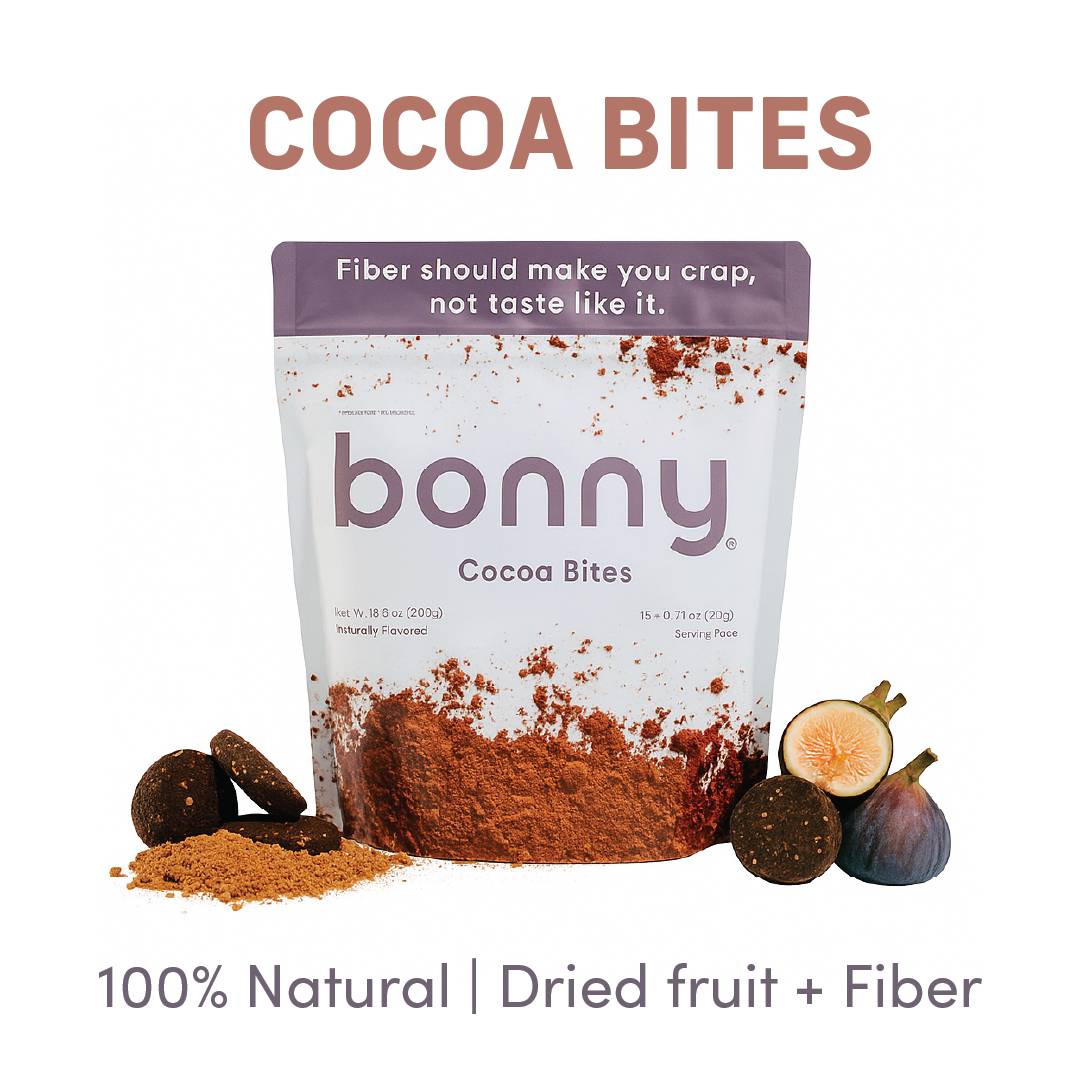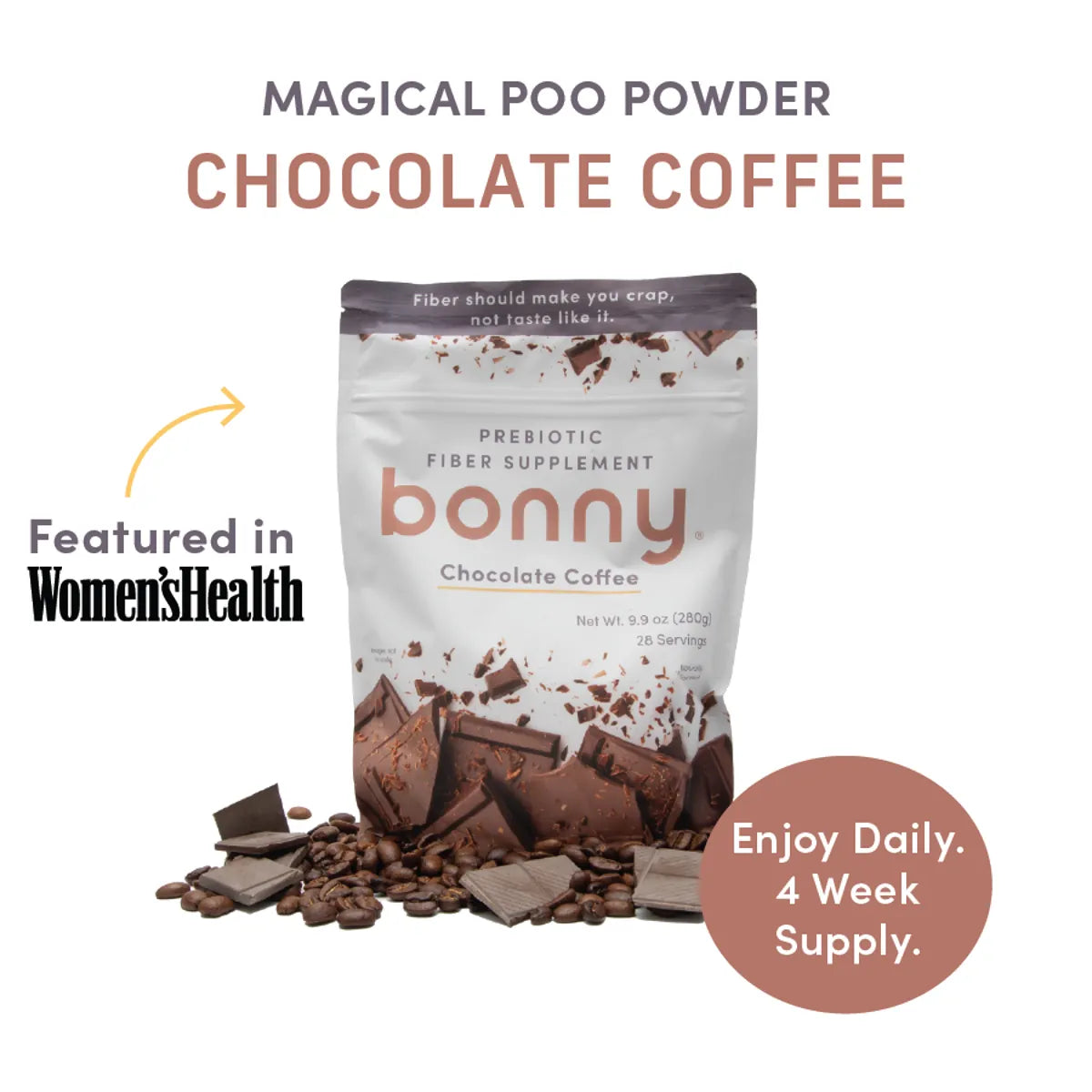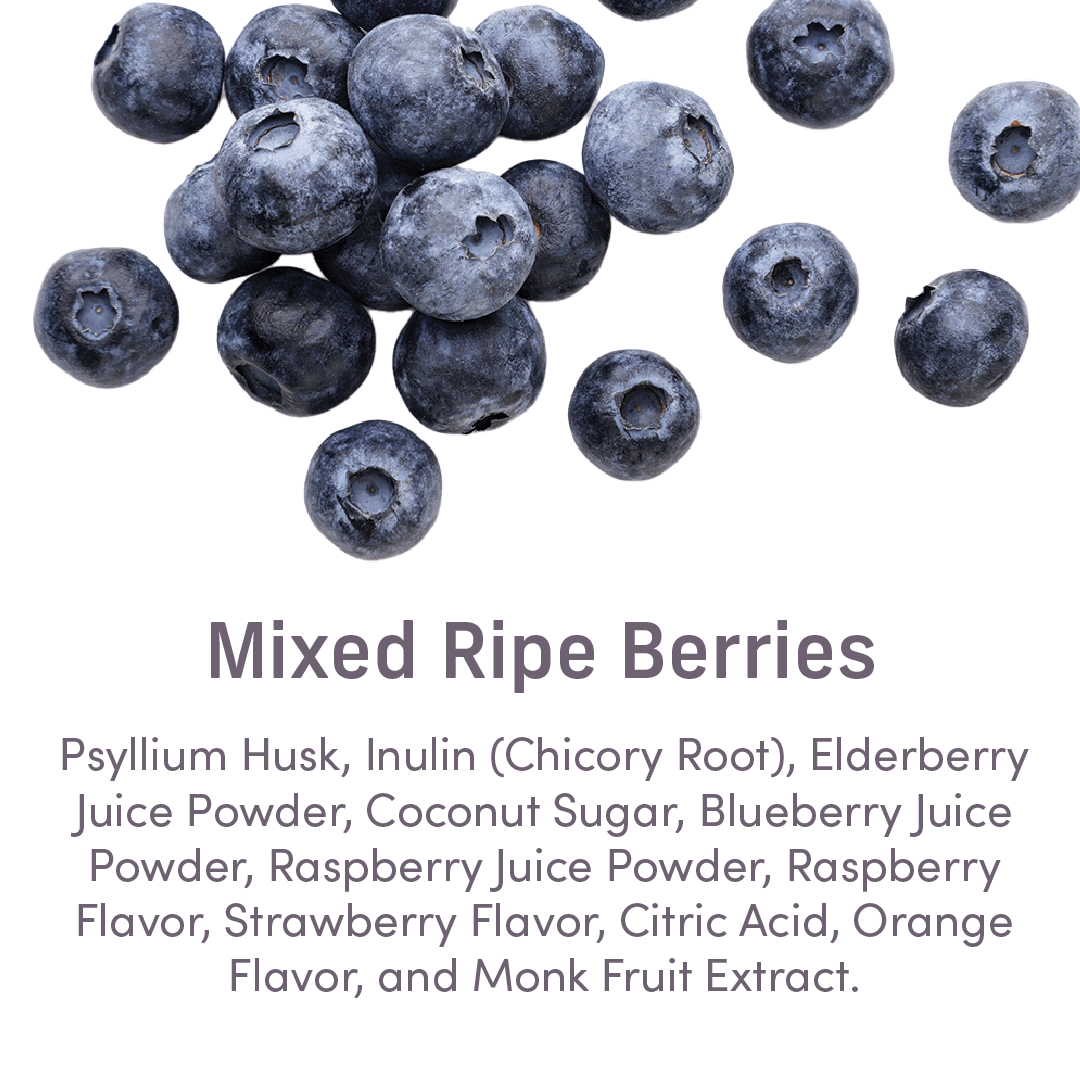Have you ever looked back at the toilet bowl and thought, wow that's impressive but maybe too impressive? Yep, we are talking about extremely large poops.
We know this raises a lot of questions. What is too big? Should I really care about this? (Yes, it could be an underlying health concern). It may be last night's dinner or it may be the result of chronic constipation.
Read on fiber friend about large stools and how fiber plays a part in keeping you regular.
First, What is Poop Made of?

Prodigal Son / Via media.giphy.com
Poop is what’s left over after the food we eat goes through the digestive process. The body takes the nutrients it needs and leaves the rest for the toilet.
The stool itself is mostly composed of food debris and bacteria, the latter of which synthesize various vitamins, process food particles and waste products, and protect the body against harmful bacteria. Yes, these are lovely gut bugs.
Poop is made up of about 75 percent water and 25 percent solid matter. That 25% of solid matter is broken down as follows:
-
30 percent dead bacteria;
-
30 percent indigestible food matter;
-
10 to 20 percent cholesterol and other fats;
-
10 to 20 percent of inorganic substances like calcium phosphate and iron phosphate, and
-
2 to 3 percent is protein.
What Size Should My Poop Be?
Short answer, it depends. Many factors can affect your stool's size and shape. Your poop is probably at least a few inches long.
What Is A Large Poop?
It really depends on what is average for you. Yet another reason to look at your poop often and keep track of it! What is large may be small to another person and vice versa. The size and consistency of your poop can vary depending on various factors such as your diet, hydration levels, and overall health. What is large for you is poop outside your average size.
Here are some things to look out for with a large poop:
-
Takes a long time to pass;
-
It takes up A LOT of space in the toilet bowl;
-
It clogs the toilet;
-
It takes a lot of pain and strain to get out; and
-
Feels never-ending out of your lovely booty.
Why Do Large Poops Happen?
While it's normal for the size of your stool to fluctuate based on what you've eaten, consistently passing large stools may indicate other underlying factors. Here are a few potential reasons:
-
Dehydration: Staying well-hydrated is essential for maintaining regular bowel movements. Insufficient water intake can lead to constipation, and when you eventually pass a bowel movement, it may be larger in size. Make sure you're drinking an adequate amount of water each day. Water is amazing!
-
Gastrointestinal Conditions: Certain gastrointestinal conditions can cause changes in stool size. For instance, conditions like irritable bowel syndrome (IBS), Crohn's disease, or ulcerative colitis can lead to altered bowel movements, including larger stools. If you're experiencing other symptoms such as abdominal pain, persistent diarrhea or constipation, or blood in your stool, consult your doctor.
-
Diet: A high-fiber diet, rich in fruits, vegetables, and whole grains, can contribute to larger stools. Fiber adds bulk to your stool, making it larger in size. If you recently made changes to your diet, particularly increasing your fiber intake, it could explain the larger stools. At Bonny, we always recommend starting slowly with fiber especially if you are new to fiber. Your body needs time to adjust to the increase.
-
Medications and Supplements: Some medications can affect the size and consistency of your stool. If you recently started a new medication or supplement, it could be a contributing factor.
-
Constipation. Constipation occurs when you have poops that are difficult to pass, or you don’t pass stool very often (usually three times or less a week). This can make for stools that are very large and hard to pass when poops do happen.
-
Megacolon. People who experience chronic constipation or who have a history of bowel obstruction can develop megacolon. This is when the colon (or the large intestine) becomes overstretched. The large intestine will then hold more stool and therefore may mean a larger poop. A megacolon can be a complication of inflammatory bowel disease (IBD) and may be a cause for concern.
If you're concerned about the size of your stool, or if you're experiencing other unusual symptoms or discomfort, consult a healthcare professional. They can evaluate your specific situation, take into account your medical history, and provide appropriate advice based on your individual circumstances.
If you are consistently experiencing large poops, there are some changes you can make to reduce the size of your stool. Actions include:
-
Drinking more water;
-
Exercise regularly which can help get things moving;
-
Eating more fiber-rich foods or taking a fiber supplement. We have a guide to fiber-rich foods here;
-
Going to the bathroom when you have the urge and not waiting;
-
Eating several small meals throughout the day instead of very large meals in one sitting. This can reduce the volume of food that your intestines process at a time and ideally maintain your blood sugar at consistent levels;
-
Going to the bathroom at consistent times each day. Also, try not to sit on the toilet for more than 10 minutes because straining or struggling to poop can do more harm than good; and
-
Avoiding medications that make you poop unless your doctor specifically tells you to.
What If I Need to Go to the Doctor?
To determine what is going on, your doctor will likely ask you about:
-
Your usual bowel habits (again it's important to keep track!);
-
If you have noticed any large poop patterns;
-
Your nutrition and diet; and
-
If you are on any meds.
The doctor may recommend further lifestyle changes as well as prescribe medications that may help you go more frequently. Having bowel movements more often reduces the likelihood you’ll have an extremely large poop.
If you are concerned, it's best to get it checked out.
Bonny Makes Pooping Easy
Bonny is an all-natural prebiotic fiber powder that helps you have a pleasant pooping experience. Bonny powder contains a custom blend of psyllium husk and prebiotic inulin to help with digestion and support gut health.
Bonny is vegan, gluten-free, and contains no refined sugars. The best part is that Bonny tastes so good and comes in fabulous flavors like Mixed Ripe Berries and Super Strawberry. Powder is not your thing, try our new Very Berry Squares for more pooping power.
As always, we wish you pleasant poops!





